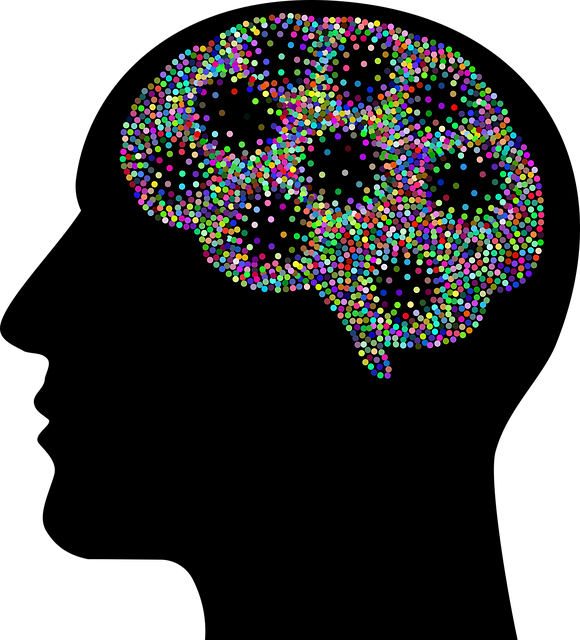Mental wellness coaching offers a holistic approach to support individuals in achieving optimal mental health, focusing on mind, body, and spirit. Unlike traditional therapy for specific disorders like Broomfield Obsessive Compulsive Disorder (OCD), coaches work with clients to identify personal challenges and develop tailored strategies, including positive thinking, self-care practices, and resilience building. Advanced OCD treatment in Broomfield uses evidence-based techniques such as Cognitive Behavioral Therapy (CBT) and exposure and response prevention (ERP). Effective coaching programs balance structure with flexibility, incorporating risk assessments, mindfulness meditation, and personalized exercises to foster long-term mental wellness. Success is measured through structured assessment tools, regular check-ins, and qualitative/quantitative methods to track improvements in OCD symptoms, self-care routines, and communication strategies.
Mental wellness coaching programs are gaining prominence as integral components of holistic health support. This article delves into the development and effectiveness of such programs, focusing on strategies for treating Broomfield Obsessive Compulsive Disorder (OCD). We explore key components of successful coaching, emphasizing personalization for optimal impact. Through a combination of understanding mental wellness, exploring specific therapies like OCD treatment, and measuring client outcomes, these programs offer transformative journeys towards improved mental health.
- Understanding Mental Wellness Coaching: A Holistic Approach to Support
- Broomfield Obsessive Compulsive Disorder (OCD) Therapy: Strategies and Techniques
- Designing Effective Coaching Programs: Key Components and Personalization
- Measuring Success and Client Outcomes: Evaluating the Impact of Coaching
Understanding Mental Wellness Coaching: A Holistic Approach to Support

Mental wellness coaching programs take a holistic approach to support individuals in achieving optimal mental health and well-being. Unlike traditional therapy, which often focuses on treating specific disorders like Broomfield Obsessive Compulsive Disorder (OCD), coaching targets the whole person—mind, body, and spirit. Coaches work with clients to identify areas of challenge and develop personalized strategies for improving mental wellness.
This supportive process involves cultivating positive thinking, building confidence, and integrating self-care practices into daily routines. By empowering individuals with the tools and mindset needed to navigate life’s stressors, mental wellness coaching fosters resilience and promotes a sense of balance. It’s not about fixing problems but rather empowering clients to make lasting changes that enhance their overall quality of life.
Broomfield Obsessive Compulsive Disorder (OCD) Therapy: Strategies and Techniques

In Broomfield, Obsessive Compulsive Disorder (OCD) therapy has evolved to include a multifaceted approach aimed at addressing the complex nature of this mental health condition. Therapists leverage evidence-based strategies and techniques to help individuals manage their OCD symptoms effectively. Cognitive Behavioral Therapy (CBT), for instance, is widely recognized as an influential method in treating OCD by challenging unhelpful thoughts and behaviors. Through exposure and response prevention (ERP), patients are gradually exposed to triggers while learning to resist compulsive actions, thereby reducing anxiety over time.
Beyond CBT, Broomfield OCD therapy incorporates mindfulness practices and emotional well-being promotion techniques. Mindfulness meditation teaches individuals to stay present and observe obsessions without judgment, thereby lessening their power. By fostering mind over matter principles, therapists empower clients to confront and overcome the internal dialogue that fuels OCD. These holistic approaches not only alleviate symptoms but also promote lasting behavioral changes, enabling individuals to lead more fulfilling lives free from the constraints of OCD.
Designing Effective Coaching Programs: Key Components and Personalization

Designing effective coaching programs requires a structured yet flexible approach that caters to individual needs. Key components include a comprehensive risk assessment for mental health professionals, ensuring safety and ethical guidelines are met. Personalization is paramount; each client presents unique challenges and strengths. Incorporating self-awareness exercises and mindfulness meditation can significantly enhance the program’s effectiveness, helping individuals manage stress and anxiety effectively. By tailoring coaching sessions to specific needs, such as addressing Broomfield Obsessive Compulsive Disorder Therapy (OCD) techniques, mental wellness coaches can foster profound personal growth and resilience.
The foundation of an excellent coaching program lies in fostering open communication and building a supportive environment. Coaches should guide clients through reflective exercises that promote self-exploration, enabling individuals to gain deeper insights into their thoughts and behaviors. This introspective process is crucial for developing personalized strategies that support long-term mental wellness. Regular feedback mechanisms ensure the program stays aligned with the client’s evolving needs, making it an adaptable and dynamic tool in the pursuit of optimal psychological health.
Measuring Success and Client Outcomes: Evaluating the Impact of Coaching

Measuring success and client outcomes is a critical component of any mental wellness coaching program. By implementing structured assessment tools and regular check-ins, coaches can evaluate the impact of their interventions on clients’ lives. This involves tracking improvements in symptoms related to conditions like Broomfield Obsessive Compulsive Disorder (OCD) therapy, enhanced self-care routine development for better mental health, and improved communication strategies.
Through qualitative and quantitative methods, such as pre-and post-assessments, client feedback forms, and progress notes, coaches gain insights into the effectiveness of their coaching approach. This data enables them to adjust their techniques, tailor interventions to individual needs, and ultimately ensure positive outcomes for each client.
Mental wellness coaching programs, particularly those tailored for conditions like Broomfield Obsessive Compulsive Disorder (OCD) therapy, have emerged as powerful tools for personal growth and recovery. By combining holistic support with evidence-based strategies, these programs offer a personalized approach to enhancing mental health. Through effective design, measurement of client outcomes, and continuous evaluation, coaches can significantly impact individuals’ lives, providing them with the skills and confidence needed to navigate their unique journeys towards wellness.














